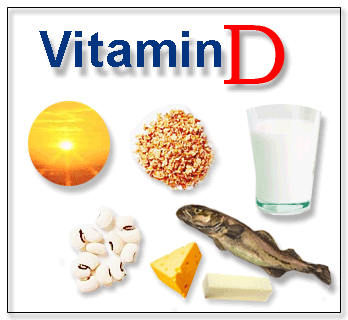These days a study is being carried out at Rambam, headed by Prof. Zofia Ish-Shalom, director of the Metabolism Unit, in which men working in knowledge-intensive companies, aged 25-65, are invited to participate.

High-tech workers are one of the groups at high risk of vitamin D deficiency. The long working hours in closed offices prevent exposure to UVB rays, and as a result, reduce the production of the vitamin. A study conducted about two years ago in the bone and calcium metabolism unit at Rambam Hospital among 100 high-tech people found that 99 of them had one or another level of deficiency, and only one had an optimal level of vitamin D.
These days, another study is being conducted at Rambam, in which men working in knowledge-intensive companies, aged 25-65, are invited to participate. The study, led by Prof. Zofia Ish-Shalom, Director of the Bone and Calcium Metabolism Unit, and Sigal Teper, a clinical dietitian and doctoral student in epidemiology at Ben Gurion University, will include 300-400 participants, and its purpose is to verify the prevalence of deficiency in this population to check whether vitamin D deficiency is an occupational risk factor , as well as in order to test the effectiveness of vitamin D supplement treatment in situations where low levels of vitamin D will be found in the blood, to improve various health indicators.
"Previous observational studies have documented the relationship between vitamin D deficiency and the risk of osteoporosis, diabetes, obesity, cardiovascular disease, influenza and other diseases, but it is very important to prove that treating the deficiency is indeed beneficial to the population. "The current study is the first of its kind examining whether the health indicators can be improved through the treatment, and if it turns out that this is indeed the case, it may indicate a simple tool to implement to prevent morbidity." Many resources will be invested in testing these indicators and they include unique tests that are not given as part of a routine test. This investment is only possible as part of research.
As part of the study, the participants will undergo a blood test in the first stage to examine the levels of vitamin D, as well as bone turnover indices, markers of inflammation, cholesterol and blood sugar levels and more. Also, additional health indicators will be examined, such as the number of days absent from work due to the flu, reports of back pain, and more. Participants found to be deficient in the vitamin will be invited to participate in the next phase of the study - an intervention phase during which they will undergo (non-invasive, expensive) blood vessel function tests, muscle strength and circumference tests. They will then receive vitamin D in a dose that corresponds to the level of deficiency found. A year later, they will be invited for follow-up and repeated tests, to examine whether at the same time as improving the level of vitamin D in the blood, there has been an improvement in health indicators.
To participate in the research and to coordinate a test, you can contact Sigal Teper, The.D.research@gmail.com or Tel: 04-6289624

3 תגובות
hello to J.
As part of the study, all the data that can affect vitamin D levels will be examined - exposure to the sun, dietary habits, lifestyle, physical activity, muscle strength and many other indicators. This is the uniqueness and importance of the research. The goal is to check whether correcting the deficiency in vitamin D (with a nutritional supplement, and not through exposure to the sun) does indeed improve the various health indicators. I hope I answered the question, if there are any more questions I will be happy to answer.
And how do you know that other variables are not related to low levels of vitamin D? (eating habits, stress and more)
Will a review group (in high tech) work in a sunny balcony?
And thanks to Prof. Zofia Ish-Shalom who indeed found a vitamin D deficiency in me and prevented a stupid operation that some senior doctor wanted to do on me.